Note from editor: 10 Key Charts now has 30 charts.
PRINT Spring 2011 Key Charts to see Before You Buy or Sell Your Home
PRINT Spring 2011 Key Charts to see Before You Buy or Sell Your Home
See 30 Key Charts as a slide show.
Thanks for carrying or quoting the Spring Guide to the Automatic Earth, Business Insider, Global Economic Intersection, John Lounsbury, LewRockwell.com, Mortgage Lender Implode, Mortgage News Clips, Seeking Alpha.
Please send questions corrections to mike@mynewmortgage.com or post a comment below.

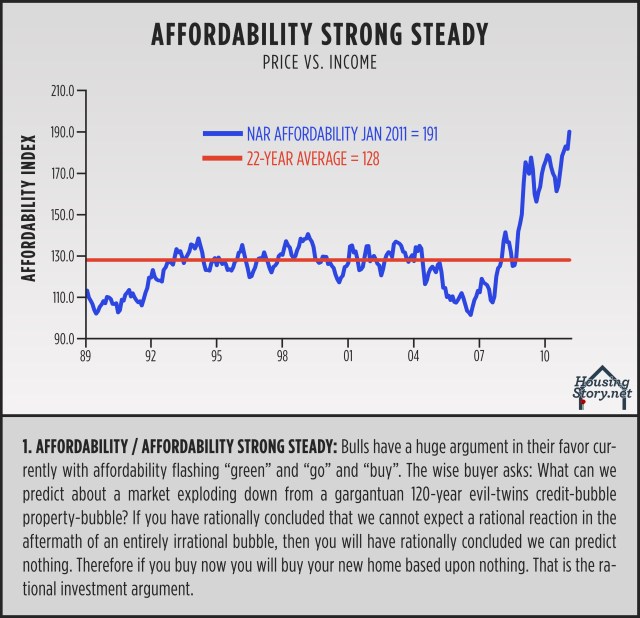


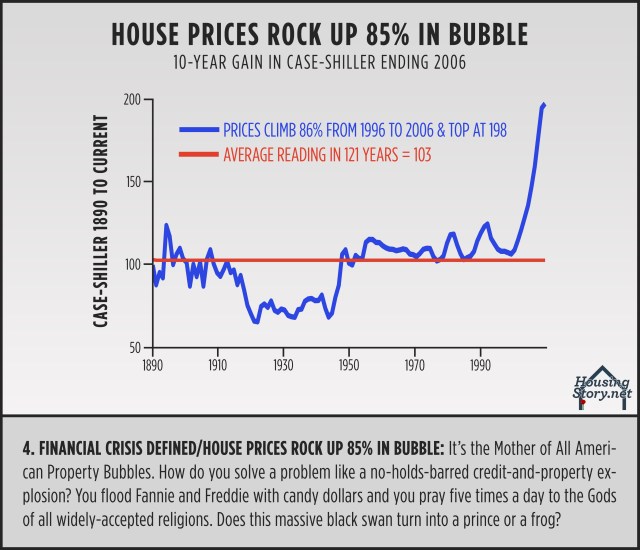

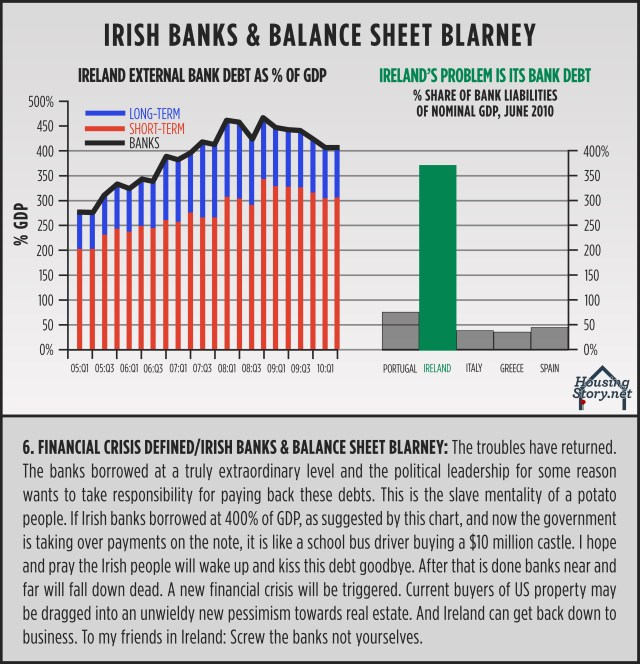
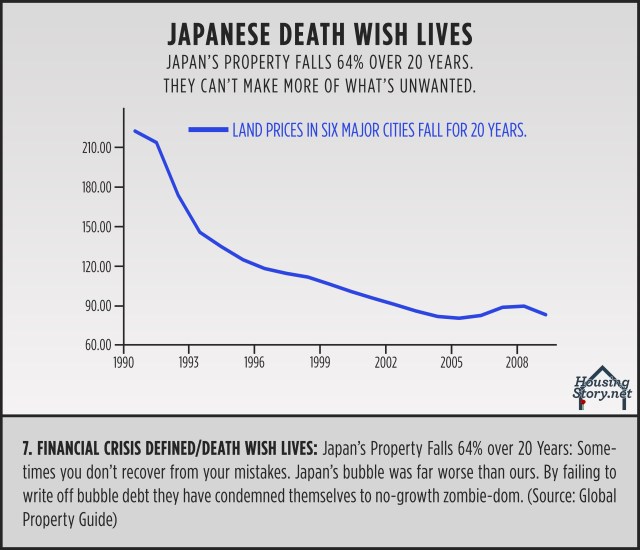
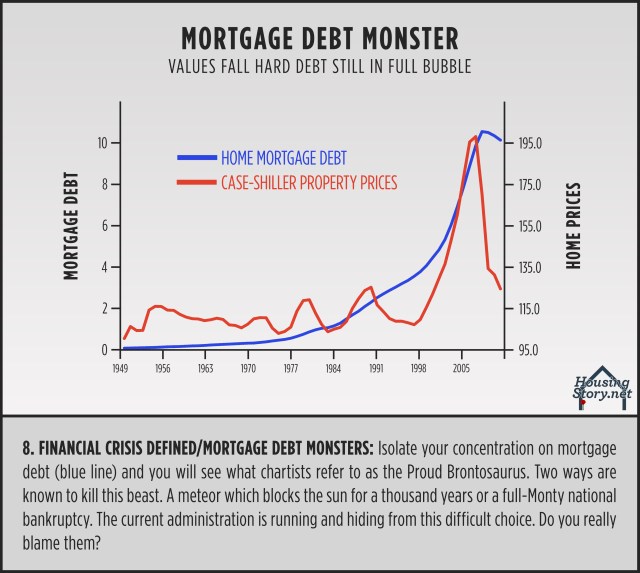
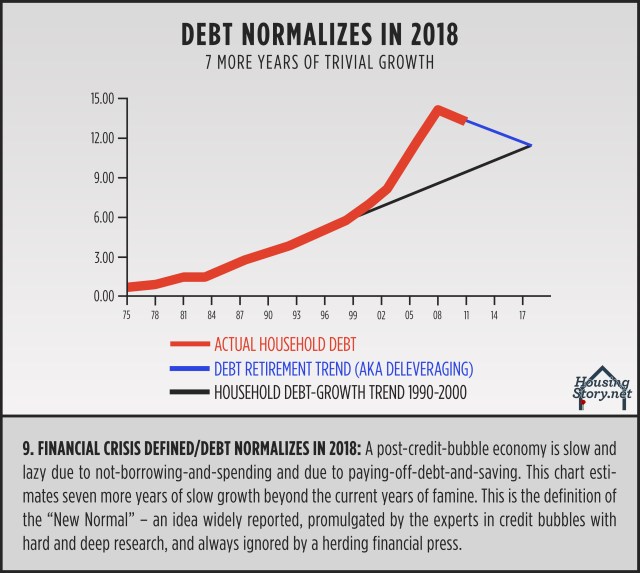
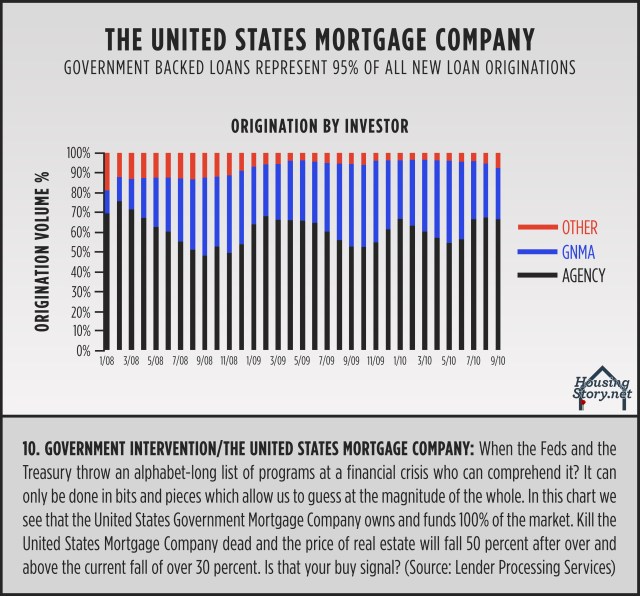


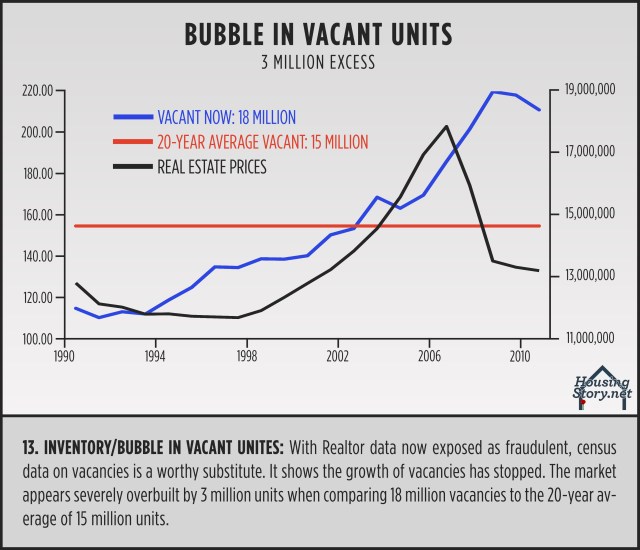
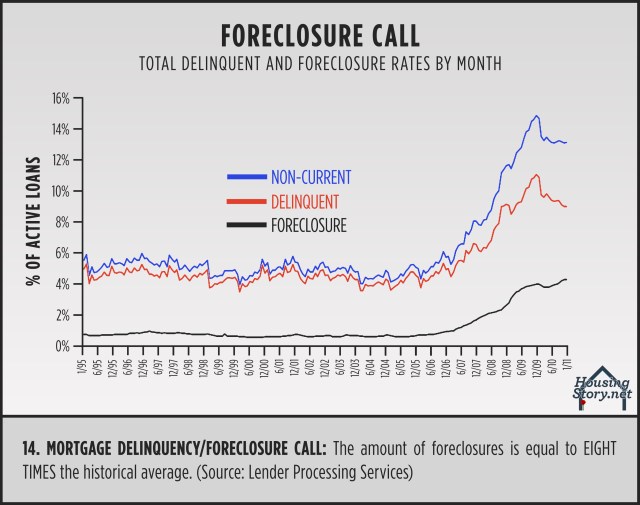
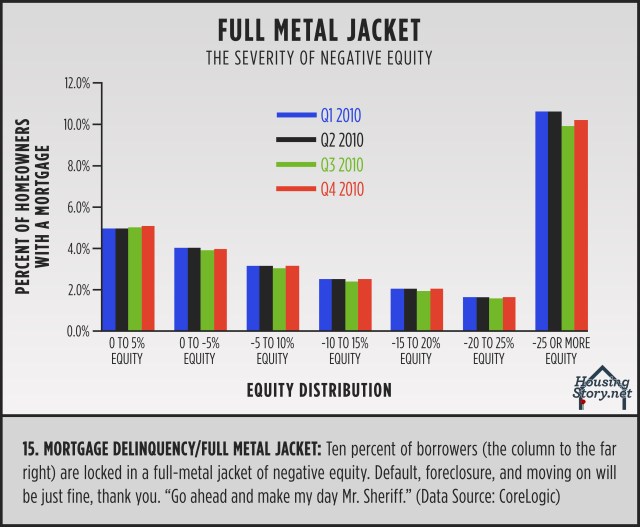


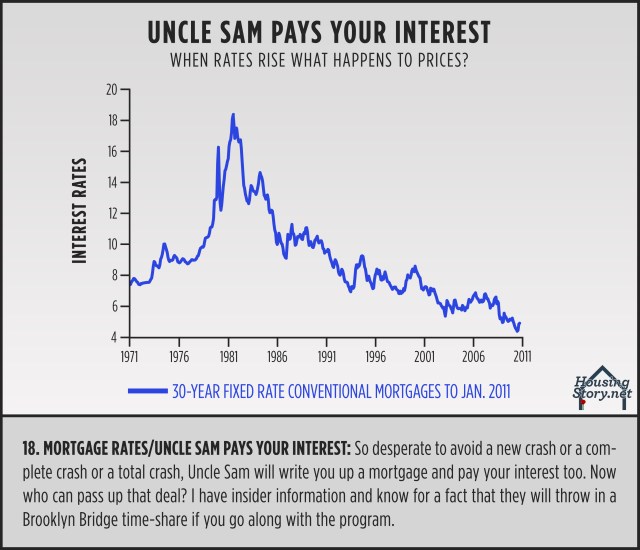
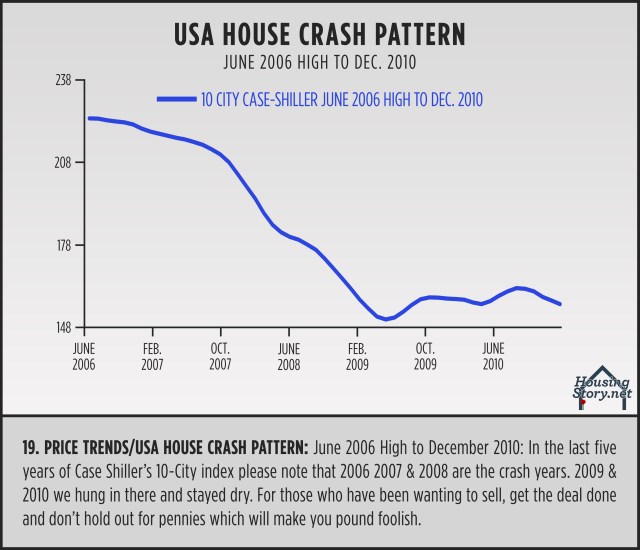
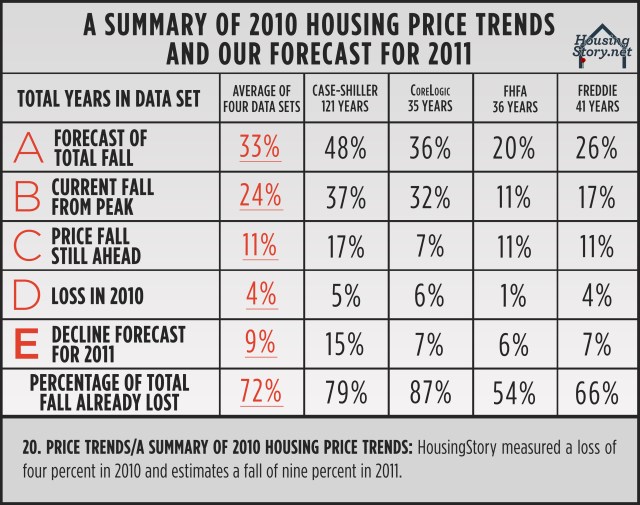
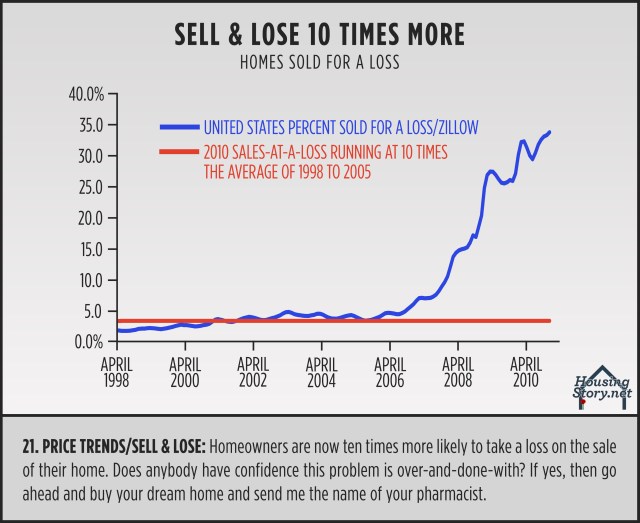


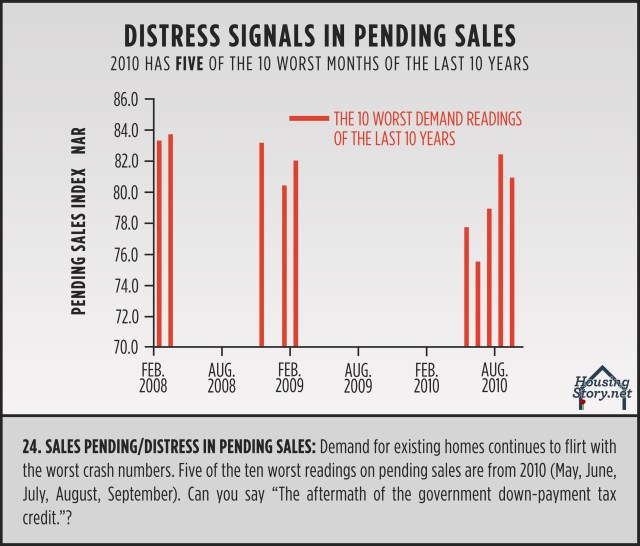
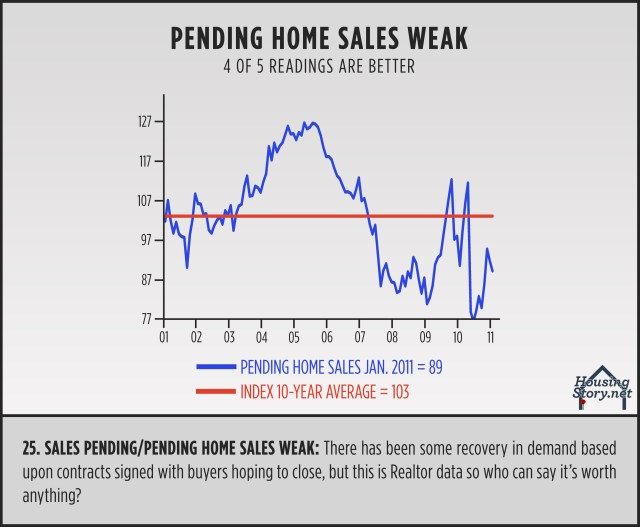





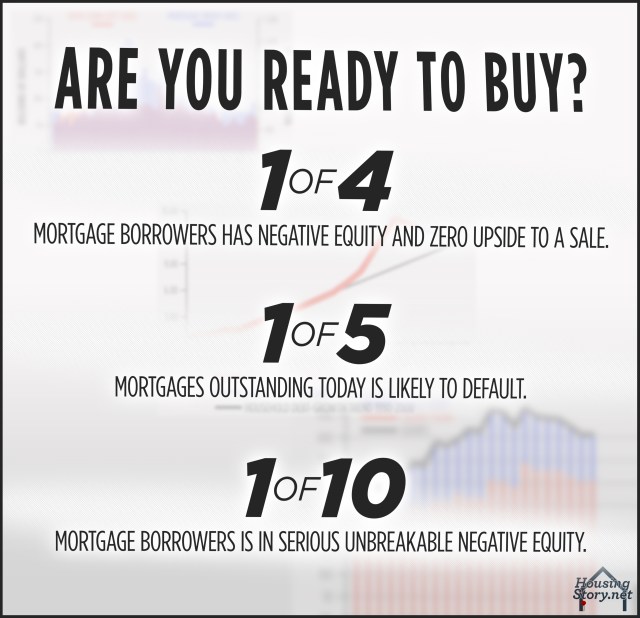
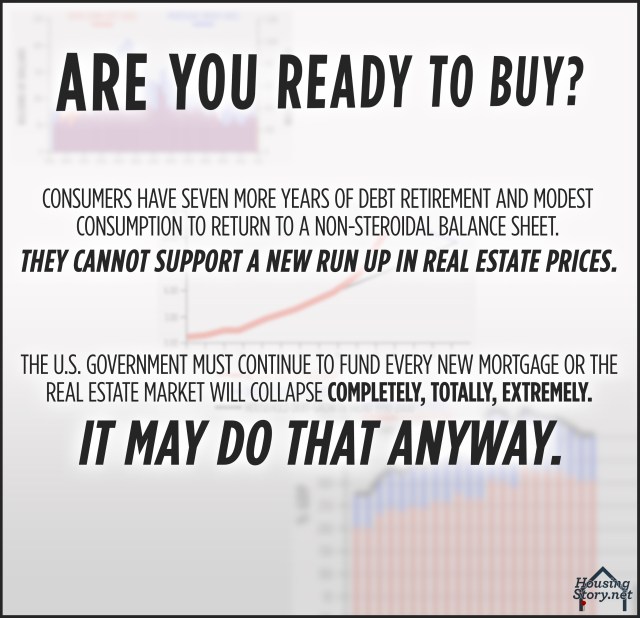



Pingback: Foreclosure Problem Still Has 2/3 to Run « Lead MLS
Pingback: The Five Stages of America’s Housing Bubble « Real Estate Prices and Mortgages on HousingStory.net
Pingback: 5 posts on NAR’s 2007-2011 Downward Home Sales Revisions
Pingback: I Will Be Back (After the Refi Boom is Done) « Real Estate Prices and Mortgages on HousingStory.net
Hi Mike – Great charts and info as always! The Phantom Menace chart says it all for the foreseeable future… I still think the banks will be forced to look at modifications with principal reductions. Do you see any alternative? Great work!
Linda Dawson
Pingback: Is the housing market improving across the United States? - Quora
i don’t get it.. sure some markets are suffering, ie. Mishigan, Illinoise, etc,.. but i know people on the west coast, CA, and Wash., that can’t find a modest 3 bdrm bungalo for under 500 000… yet i hear all this talk of doom and gloom in the market. What gives? Who to believe?
… i have never paid more than 100 000 for any of the homes i’ve owned and still had trouble sleeping at night. How do people do it?, Especially in this uncertain market..
Hi Francis, it is not an easy time to buy and should only be done after a lot of homework. thanks for your comment. Mike
hi there,
i am thinking of buying a short sale in San Rafael, CA
it is priced about 25% below market – now around the $760 K area pricewise
yes there are some repairs maybe $25 K nothing major
so… wouldn’t the market have to fall another 25% for me to be worse off? or am i missing the point?
is it just that i’ll have to wait several years to start making money on this as an investment?
thanks
Hi Pat, If you you can buy 25% under the market you have significant protection. If you have 95% confidence in your appraisal of values, and if you can easily afford the home, you may be in a good position to buy. Thanks for your comment. Michael
Pingback: The Economist Calls America’s Recovery a Terrible Performance « Real Estate Prices and Mortgages on HousingStory.net
Michael and others,
Great article. I need some advice. I live in CT suburbs about 50 miles from NYC and housing prices are still going down. I practically own my starter home and wonder what to do? Is now a good time to trade up with interest rates being so low or should I ride it out for a litle while longer? My fear is using my current equity to buy into a bigger home that depreciates even more than my current home if rates go up. The good news, I am currently not trapped. The trade-off is, I could be if I move up.
Renting is not a viable option for me.
Comments, suggestionas are appreciated.
Hi Dave, go slowly toward your purchase. buy less than you can afford. or better yet buy much less than you can afford. stay put if you can. if you have to buy then drive a hard bargain. have a good day. Michael
Mike,
thank you for the data and thorough charts that support my argument for the past 24 months. I will reference your site more often now that I have come across another respectable businessman who likes to call a spade a spade. If you want please look take a look at my thoughts, blog.house-guy.com
Thank you,
Justin The House-Guy
Mike,
Your numbers, charts, and analysis have made me more bearish. I was a slight bear as of last month–believing that things would be stagnant for quite some time–no growth in prices, but sales might pick up. After watching Shiller speak on several news shows when the recent Case-Shiller data came out, I thought there is a possibility of further declines. Shiller was quick to say that he sees further declines as a real possibility but that he was not sure. Looking at the data you compiled from good sources further drops appear likely.
Hi Prisoner prices are falling in the current national trend. have a good day. Mike
This Armageddon Scenario is hard for me to conceptualize. I live in Ft. Hood TX area (N. of Austin) and nice homes in our communities seem to selling well if you don’t overprice. My sister just sold her middle-class home in 4 weeks for $200k and can’t find a new roomier one to buy that she likes. So are we suppossed to crash too?
Hi Sarah, local markets may be very healthy in which case you can ignore the national trends which I follow. thanks for your comment. Michael
Pingback: Gullibility for all | ISOwatch
Just want to add my own experience here. I was already in the mindset that is quite understandably put forth via these charts. I purchased a condo in a prime area of Santa Monica, CA in early 1997 for $265,00. It was a good price at the time because the building had just been converted from apartments to condos following earthquake damage and subsequent repairs, retrofitting and major renovation. At its peak, I probably could have sold the unit for somewhere in the $760,000 – $840,o00 range. But alongside the bursting of the real estate bubble in 2007 – 08, the building became a kind of “zombie” building, mismanaged and with excessive monthly homeowner’s dues, which did not help matters. In 2010, i went into the “get-the-hell-out-of-here-this-minute” mode and told my listing agent to “under-price” the unit for an immediate sale. My 2-bedroom unit was then put on the market for a price that was equal to and in some cases, less than one-bedroom units in the same neighborhood. It was listed at $595,000 (most other 2-bedroom units in this prime neighborhood were listed for at least around $700,000) and within one week I had an offer (from investors who had a deadline regarding capital gains on a previous sale). We settled at $575,000 and to my great, great relief, the unit and I parted ways in late October. I like here to see the half-filled glass as half-full instead of as half-empty. The money I once could have gotten for the condo is irrelevant, life is filled with “could haves” and “if onlys”! I am dead certain that in two years from now, the money for which I sold my condo will look fantastic + by then the funds that I walked away with will have increased due to smart investing on the basis of full-knowledge of the death-spiral of the American dollar (something to factor in to American$ based real estate). There are ways to profit within this financial/economic picture, but only for those who can fully accept the catastrophe that is upon us! I also recommend Simon Black’s website, http://www.sovereignman.com and the idea of becoming an expat (S. Black’s website has lot of important info related to expatriation).
Amen to the comment that absurdly out-of-whack high transaction fees in the buying and selling of real estate makes the statistical pain of the current plague unnecessarily worse than it needs to be. If MLS agents cannot justify their commissions with evidence-based proof that they are adding at least 6% value to the deal, then they are only adding a counter-productive levy — expense — that is exacerbating the painful de-leveraging that is going down. Besides the vampire agent, only the property tax assessor benefits from such a business model. When transaction fees and agent commissions become entitlements, we create a market that favors mal-investment — who in their right mind would favor the obsolete Blockbuster over Netflix? As long as the internet and e-commerce are kept from bringing economies of scale to the entrenched MLS monoploly on gross commissions, real estate, as an asset class, will continue to suffer. Just think if stocks and bonds carried such exorbitant transaction fees — if consumers have moved on from paying travel agents 10% on every airline ticket purchased, when then will they demand that MLS agents be compensated via a fee structure for services rendered rather than gross commissions based on the entire sale!
Pingback: Treasury trove of NATIONAL real estate charts | Arizona Real Estate Notebook
Mike,
Question on the “full metal jacket” slide…
When calculating equity, is this before or after accounting for real estate transaction costs? Assuming seller uses an agent – plus other closing fees – this would range from 4% to 7% of sale price.
Therefore, if calculation of equity is “pre transaction costs” – then the situation is actually worse. Because those in the “+5% to 0%” category – are actually under water at the bottom of the HUD1 statement when/if they sell their house.
Can you clarify this for your readers. Kudos again for your solid work product here.
Dave.
Hi Dave, I believe the neg equity calcs by CoreLogic exclude transaction costs. Real negative equity is higher than the charts indicate. Thanks for your comment Mike
Please place us on your mailing.
It has been stated that 70%+ of the community banks with assets of less than $300MM have lost money. The to big to fail financial institutions have horded tarp funds, have not provided capital to small business without a credit mitigant of a SBA/USDA guaranty and only then will consider extending credit, have elected not to mark to market their non performing real estate assets, the regulators continue to pressure the community banks to raise capital, write down performing unsecured loans which contribute to the bank failures, which create additional burdens to businesses attempting to survive in turn creating unemployment as a result of the bank failure and borrowers with interrupted credit facilities not being renewed. The unemployment rate continues to rise and the thought of owning a home as the “american dream” is now an “american nightmare”, a home is no longer an asset, it is a liability as more families elect to rid themselves of this stress. Your information was on point and I believe conservative.
Hi Robert, It certainly seems possible now that we can fall much more than we could have imagined at the start of it. Check the link below for a prediction of a 20% fall dated April 1 2008. At that time a fall of 20% was considered wild. Thanks for your comment. Michael
Your Apocalyptic Analysis of the doomed housing market is very much appreciated. I have been following you for months now and for a while it seemed that you were taking a bit easy, perhaps waiting for the statistics to come out. I am glad you have the courage and the guts to speak the truth… Supported by hard evidence and facts complemented with intellect and impeccable foresight. Some will remain skeptical, led by the Realtors (NAR). Perhaps more people will awaken to reality! Unfortunately, this mess affects us all, we are all on the same boat… But I know this ship can sink, so I will get on the raft and now wait and see how they will re-arrange the chairs on the deck and the crew strikes up the band. The rats emerged from the bottom and have already abandoned the ship.
Hi Chapulin, My favorite quote is from Amherst Mortgage Securities, the mortgage experts: “This cannot happen.” They would be better to follow your lead and build the life raft. I suggest you add a passive solar rat fridge to keep the varmint meat edible. Enjoy your voyage. mdw
LOL. Thanks for your continued analysis!
I am looking forward to a new update. I expect. in hindsight, for your review to be an accurate trend with recent updates in reality.
A couple of observations:
1.) A lot of credit/capital was “misallocated” to new homes in crappy areas where land was cheap and jobs were scarce. I see no reason why these won’t continue drive & exceed negative expectations.
2.) Homes in desireable/affluent areas tend to be built on available land which is scarce and hooked up to utilites which are limited and built from raw materials which are going to become increasingly scarce (more expensive) in the long run and built by labor which is more expensive. I see the possiblity of homes in “desirable” areas being less subject and less relevant to the national loss figures – because there are fewer of them.
Desireable areas are desirable becasue of availablity of Jobs, Pay, weather, schools, etc. Homes in the desert(s) (for instance) will not likely ever be desirable again unless prices really fall.
I’m not suggesting that prices are soon going to increase in desirable areas, but the risk and duration of price drop seems far less and for good reasons.
Hi Jim, i know i have seen research which suggests high-end properties are vulnerable to greater losses in percentage terms. I may have even written about this. Expensive properties depend upon real banks making real loans based upon real underwriting standards. These are the loans i concentrate on in my day job. My guess is there is a lot less credit to support values in expensive zip codes. And the availability of credit may be the greatest influence on prices. Thanks for your comment. Mike
Wonderful presentation, Michael. These are the most professionally produced charts you’ve produced yet – very pleasing to the eye (not the information; the layout of the charts & info). By the way I also very much enjoy the information. For a while it seemed like you had toned down your “end of the world” real estate market talk, but I’m glad it has returned with a vengeance. The numbers don’t lie, and you know that. America has been on a borrow and spend binge for decades; time to meet your maker people. I hope the market over-corrects and purges itself of much of the leverage and over-stretched homedebtors. Thanks again for your diligent reports on the residential housing market Michael. Sincerely, Tom in San Diego.
Hi Tom, Glad you like it. Thanks for your kind words. Mike